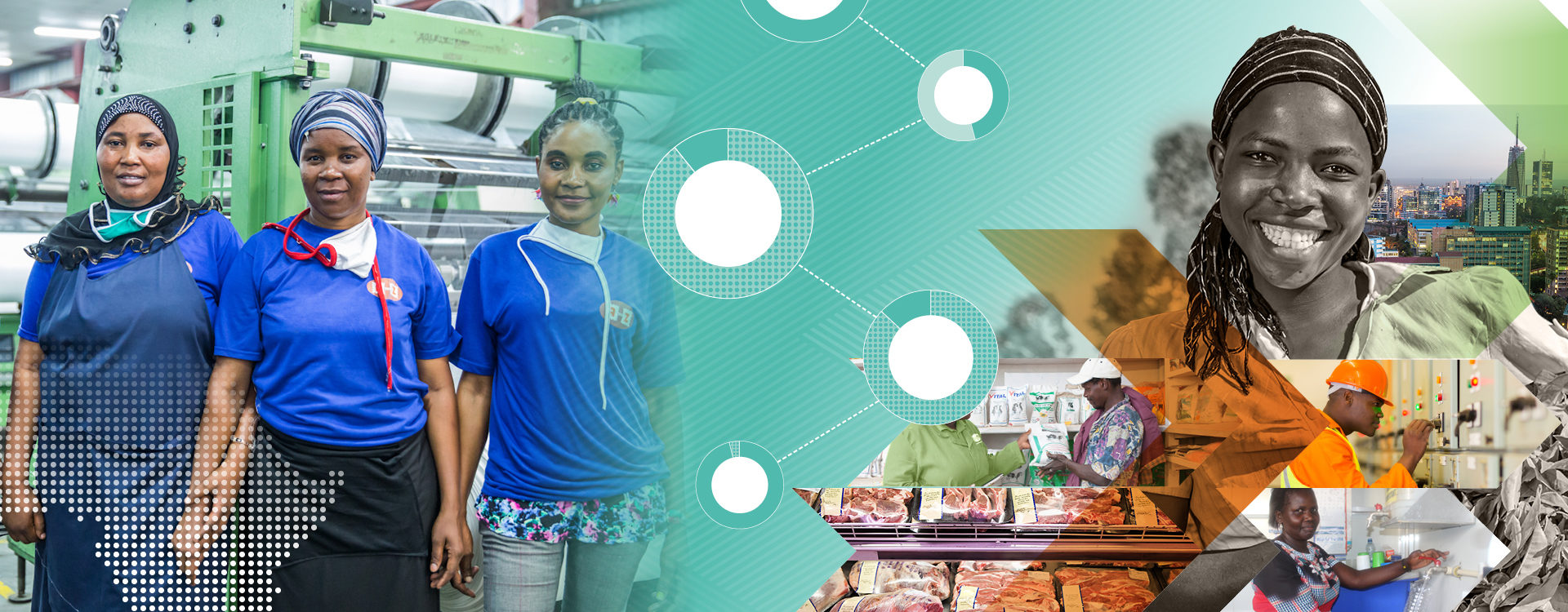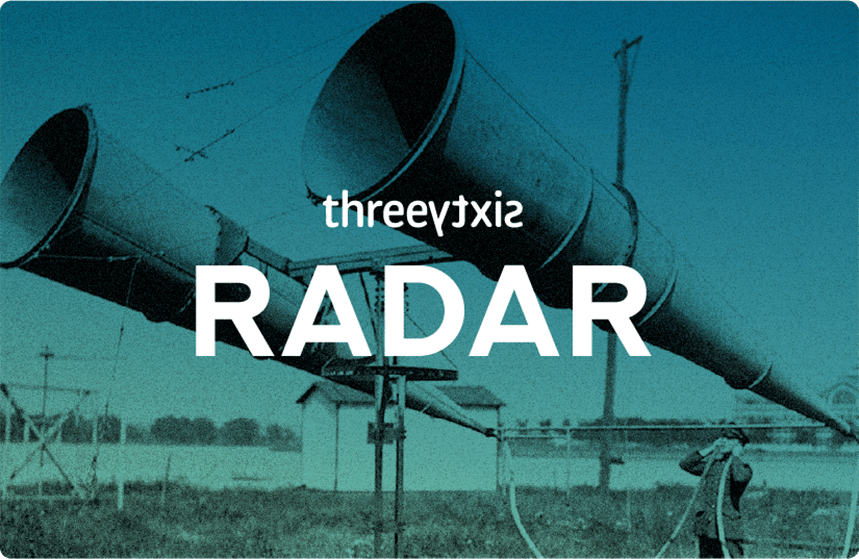Exploring small opportunities
Like most things that transpire at Threesixty, our work in international development came through meeting like-minded, inspiring people and exploring small opportunities that present themselves.
It all began in 2006 when we were contacted by Kilkenny-based international development consultant, Andy Salm, who was working on an exciting project in Lesotho. One of Lesotho’s primary industries at the time was apparel and clothing manufacturing; an industry that has played a huge role in the economic development of many African countries, a first step to industrialisation that creates employment and generates important export revenue.
Andy was working on a project called ALAFA (Apparel Lesotho Alliance to Fight Aids), an initiative of UK-based NGO ComMark Trust, and backed by Project Red, Bono’s initiative to engage the private sector to fight aids in Africa.
At that time, Lesotho had something like a 60% HIV positivity rate. With such a large local workforce in apparel and clothing, it was crucial for the industry adopt a range of supports to ensure the sustainability of the sector and allow Lesotho to achieve the economic and social benefits associated with a thriving manufacturing and export sector.
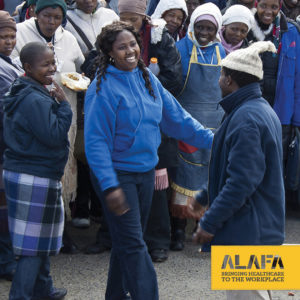
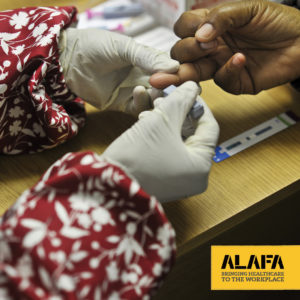
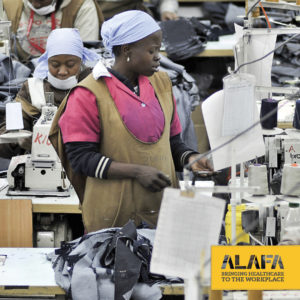
Positive societal impact
Andy engaged us to create a branding and communications campaign for ALAFA. This was a whole new world for us as we’d only ever operated in the commercial sector to this point. It gave us an amazing buzz to get stuck into something where ultimately there was a positive societal impact as an outcome.
It was also hugely challenging. I suddenly found myself on the ground in Lesotho, going to workshops with a diverse range of teams and stakeholders. There was culture shock and adrenalin rush in equal measure – a healthy mix.
For the ALAFA project, we built a brand platform, visual identity and messaging that spoke through stakeholder communications to significant clothing brands like Gap, Levi’s and Wrangler, who bought in through their respective CSR programmes.
While the brand was all quite polished and international-facing at one end, the second phase reached out to the factories and workers, delivering a range of communications that provided information about in-factory clinics, and safe and healthy sexual practices. We supported that project throughout its entire seven-year lifecycle, including communications with the Lesotho government to get them to buy in and assume responsibility for the activities of ALAFA once the programme finished.
Building an NGO knowledge-bank
While the ALAFA project was going on, we started working with Andy on another global initiative called the Organic Exchange, which was an industry-influencing body created to promote the worthiness and sustainability of producing organic cotton. Due to the water-intensive and insecticide reliant nature of cotton production, the Organic Exchange worked to promote the use of organic materials with large brands like Patagonia, Eileen Fisher, Nike and H&M, all of whom could see the potential for sustainable clothing production.
This was a much lighter project than ALAFA, involving the creation of visual identity system and communications materials, however, it gave us a deeper insight into how the sector worked. We were starting to build a considerable knowledge-bank around textile and clothing and also around the culture and goals of NGOs and international development.
This knowledge proved invaluable in 2015 when we were invited to pitch for a project aimed at making apparel and textile (A&T) a major employment generator in Tanzania. We successfully pitched to a specialist unit within the Tanzanian government’s Ministry of Industry and Trade, and subsequently carried out an extensive branding and communications campaign to attract foreign investment into the A&T sector in the Tanzania.
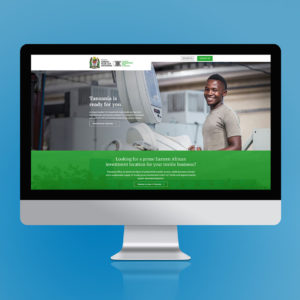
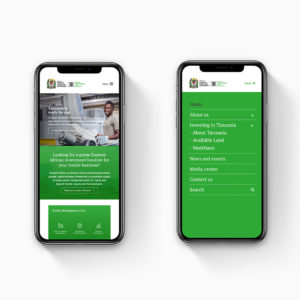
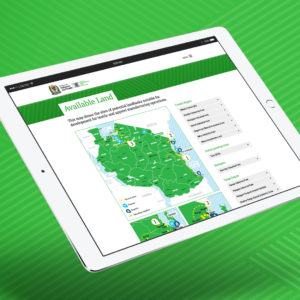
Boots on the ground
This was a fairly massive project. Working with the Textile Development Unit (TDU), we were boots on the ground, embedded for considerable amounts of time with the client in Dar-es-Salaam. What really impressed me was the amazing energy and forward momentum within the team we worked with in Tanzania – it was very infectious and once again gave us a much deeper insight into the workings, values and priorities of NGOs and how strategic communications can be used to support their goals.
Since then, we’ve worked on a number of other exciting projects, including Msingi in Kenya, an economic development programme focused primarily on the development of sustainable aquaculture. Our involvement here was to help the organisation understand its value, articulate its story and develop a clear set of communications materials and messaging.
We also worked with an organisation called the Kenya Markets Trust (KMT), who work to engage government and businesses in sectors crucial to economic development by identifying constraints and opportunities within major areas such as water supply, and to influence people who can make much-needed change. For KMT we did value proposition work, helping them to simplify their story, relate what they do and how they talk about it. This type of work has proved to be very much a transfer of the processes of what we do in our commercial work, only tweaked to meet the visions and end-goals of NGOs.
Ready for the next chapter
Serendipity brought us into the field of international development 15-years ago; speaking to our innate characteristics as an agency to do good, learn as we go and work with people we like. The area has proven massively rewarding and has wholly drawn us in, leaving us ready for the next chapter of this exciting adventure.
